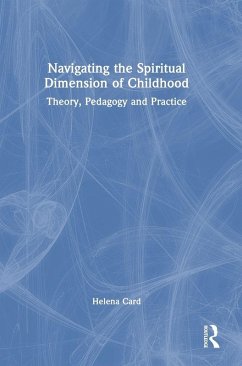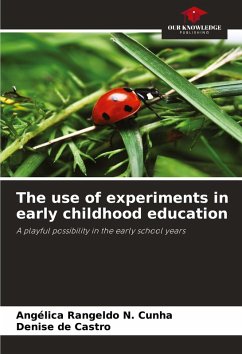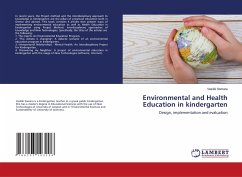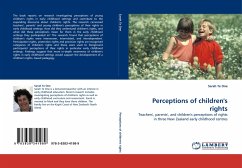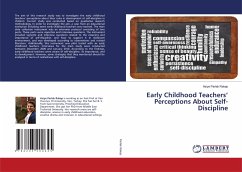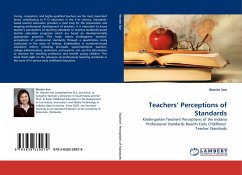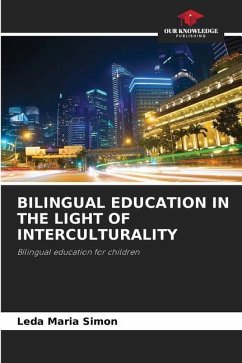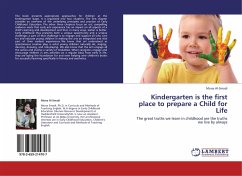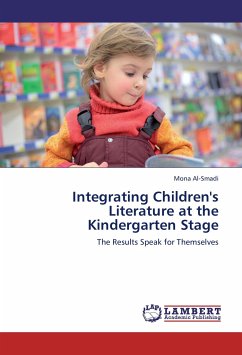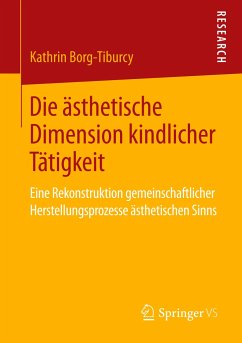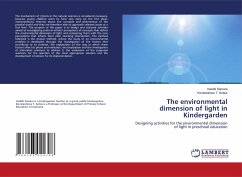
The environmental dimension of light in Kindergarden
Designing activities for the environmental dimension of light in preschool education
Versandkostenfrei!
Versandfertig in 6-10 Tagen
27,99 €
inkl. MwSt.

PAYBACK Punkte
14 °P sammeln!
The involvement of infants in the natural sciences is considered necessary, because young children seem to form very early on the first ideas, interpretations, theories about the concepts and phenomena of the physical world and they are therefore able to approach relevant issues at a first level. The purpose of this paper is to design and evaluate activities aimed at investigating preterm infants' perceptions of concepts that define the environmental dimension of light and comparing them with the new perceptions that infants form after teaching intervention. The method followed is the project ...
The involvement of infants in the natural sciences is considered necessary, because young children seem to form very early on the first ideas, interpretations, theories about the concepts and phenomena of the physical world and they are therefore able to approach relevant issues at a first level. The purpose of this paper is to design and evaluate activities aimed at investigating preterm infants' perceptions of concepts that define the environmental dimension of light and comparing them with the new perceptions that infants form after teaching intervention. The method followed is the project method, where the study of an environmental problem is developed through the investigation of the factors that contribute to its creation, the explanation of the way in which these factors affect its phase and evolution, the localization and the investigation of alternative solutions to address it, the evaluation of the proposed solutions for the selection of the most appropriate solution and the development of actions for its implementation.



